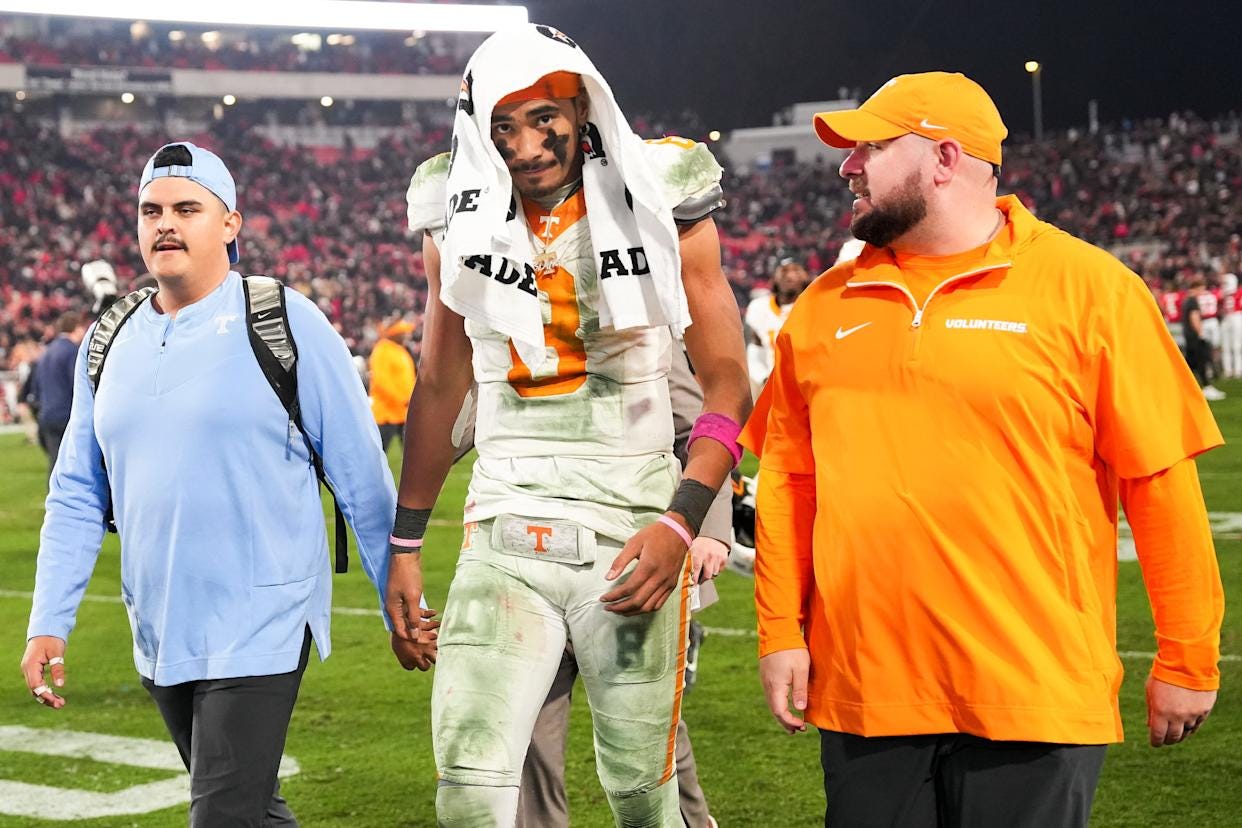The Five: The Last Walk-On (2002)
How the shock of a changing college sports model threatens its fundamental purpose.
This is Throwbacks, a newsletter by me, Michael Weinreb, about sports, history, culture and politics, and everything in-between.
If you like what you read, please click the button below, join the mailing list for FREE and please share, on social media or through e-mail or however you feel comfortable sharing.
And if you’ve been reading for a while, please consider a paid subscription to unlock certain posts and help keep this thing going—you’ll also get full access to the historical archive of over 200 articles. (Click here and you’ll get 20 percent off either a monthly or annual subscription for the first year.
(If your subscription is up for renewal, just shoot me an email and I’ll figure out a way to get you that discount, as well. If you cannot afford a subscription and would like one, send me an email and I’ll comp you one, no questions asked.)
I.
Let us begin today by meandering back in time to the town of Riley, Kansas, (population 938) in the year 2002. Your Riley County High Falcons have just completed an 8-2 season, led by a dual-threat quarterback named Jordy Nelson, who has just been named Flint Hills Player of the Year. Nelson is a star in three sports—football, basketball and track—but his college scholarship options are limited, and so he decides to walk on at nearby Kansas State.
After a redshirt season as a defensive back, Kansas State coach Bill Snyder sees something in Nelson, and shifts him to wide receiver. By the time he’s a senior, Nelson catches 122 passes for 11 touchdowns, throws for two more touchdowns, and returns a pair of punts for touchdowns. In the second round of the 2008 NFL draft, the Green Bay Packers choose Nelson, and over the course of a decade-long pro career, he catches more than 600 passes for 72 touchdowns and helps the Packers win a Super Bowl.
I think if you commissioned a poll, there would be nearly unanimous public opinion that Nelson’s story is a testament for the continued existence of college sports. I think anyone devoid of a withered heart would hear Jordy Nelson’s story, and say, That is something we need to preserve in this new era. And yet here we are.
II.
The dominant story this week in college sports was the holdout and subsequent transfer of Tennessee quarterback Nico Iamaleava, who chose to leave the school where he was the starter amid an apparent dispute over money and control. This was an easy target for the argument that college sports has lost its essential soul, and I understand why, because it felt as if Iamaleava had stretched the notion of self-interest to its limit, and that he seemed determined to exert unprecedented control over a program that didn’t belong to him.
This Iamaleava story was, to a lot of people, the definitive proof that too much was changing, too fast. But I think the outrage here shrouds the other half of the story, which is that—as college sports sets in place a radical reshaping of its fundamental purpose—the thousands of athletes who do not have Iamaleava’s profile are at risk of losing something essential. They are at risk of losing an opportunity.
Keep reading with a 7-day free trial
Subscribe to Throwbacks: A Newsletter About Sports History and Culture to keep reading this post and get 7 days of free access to the full post archives.




